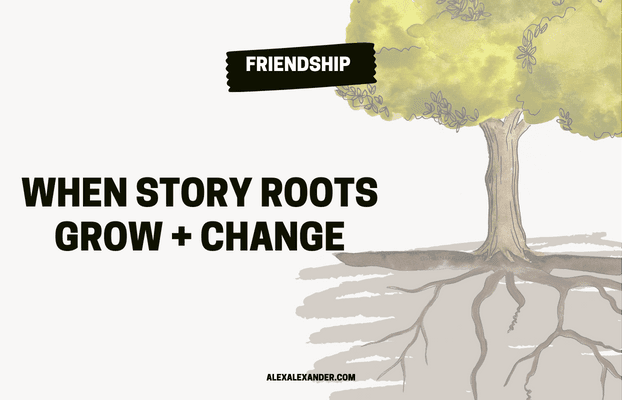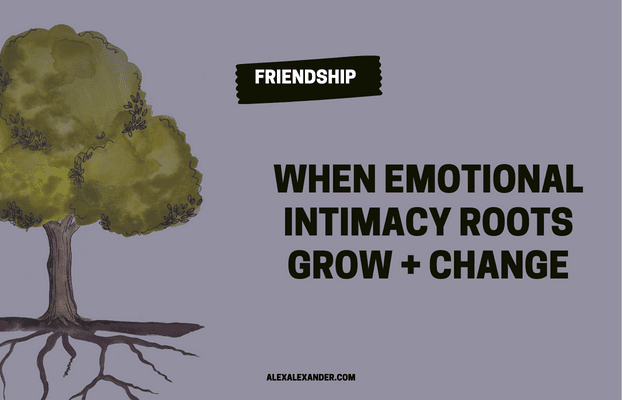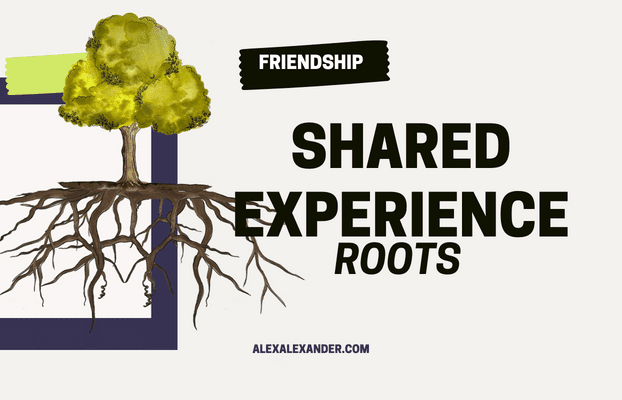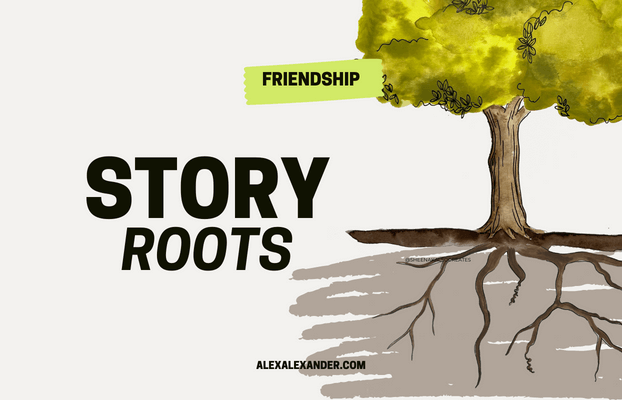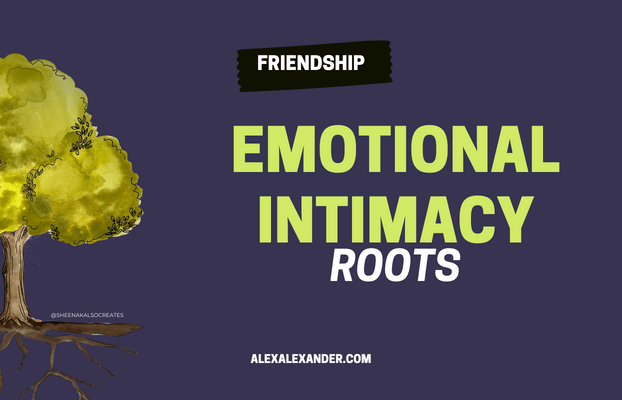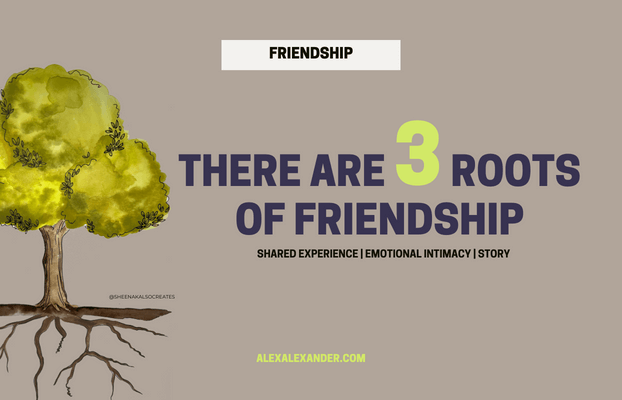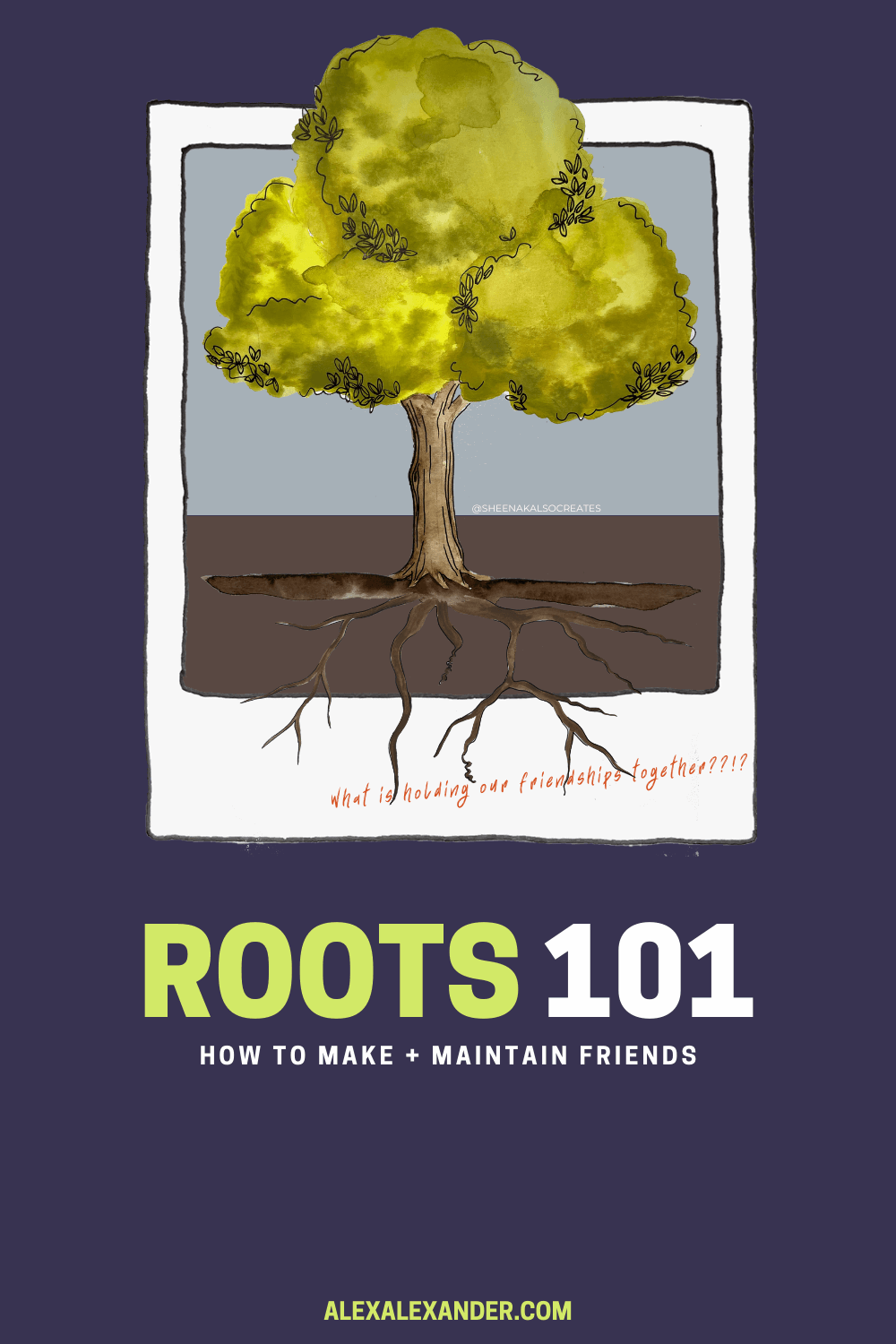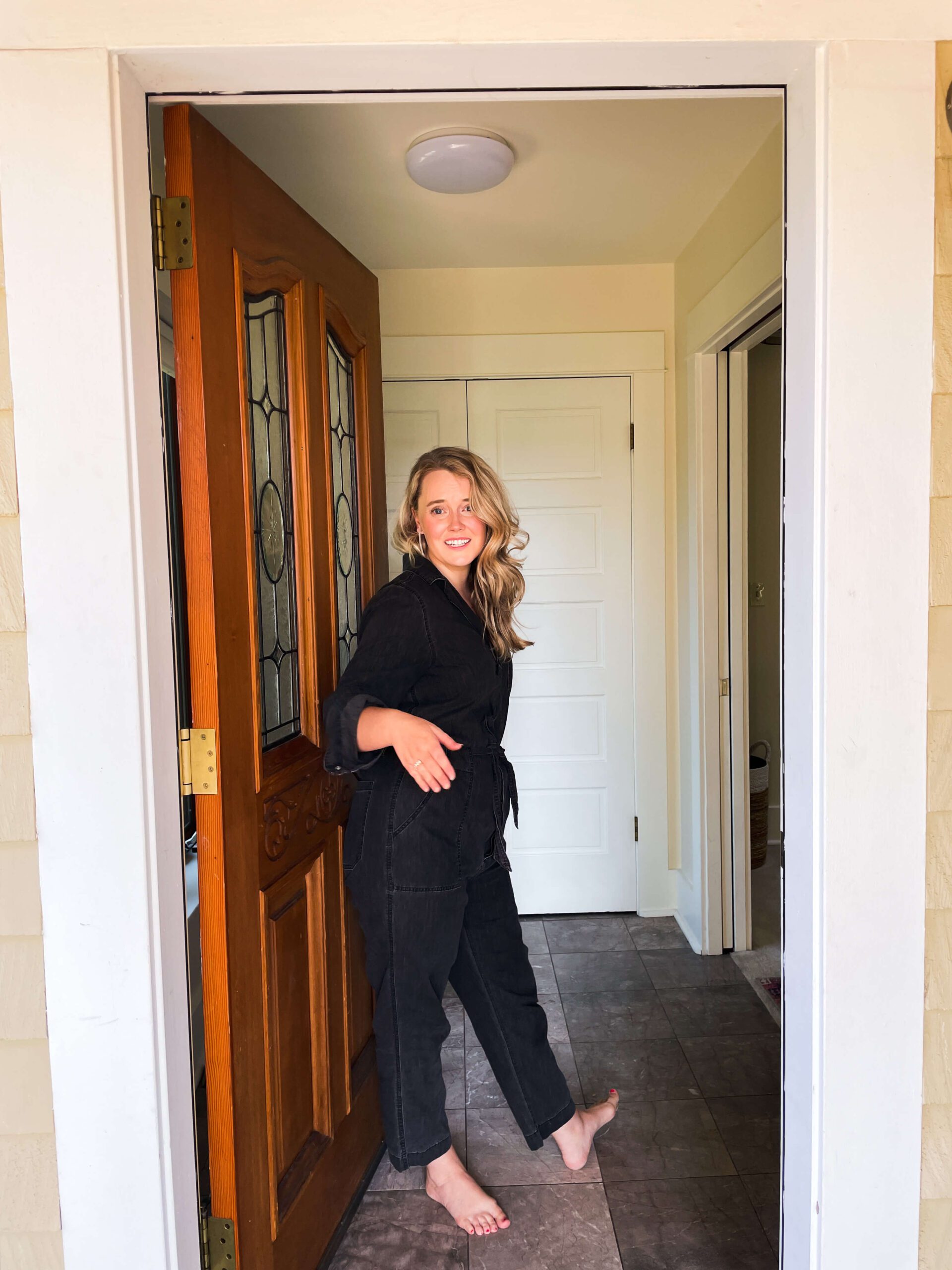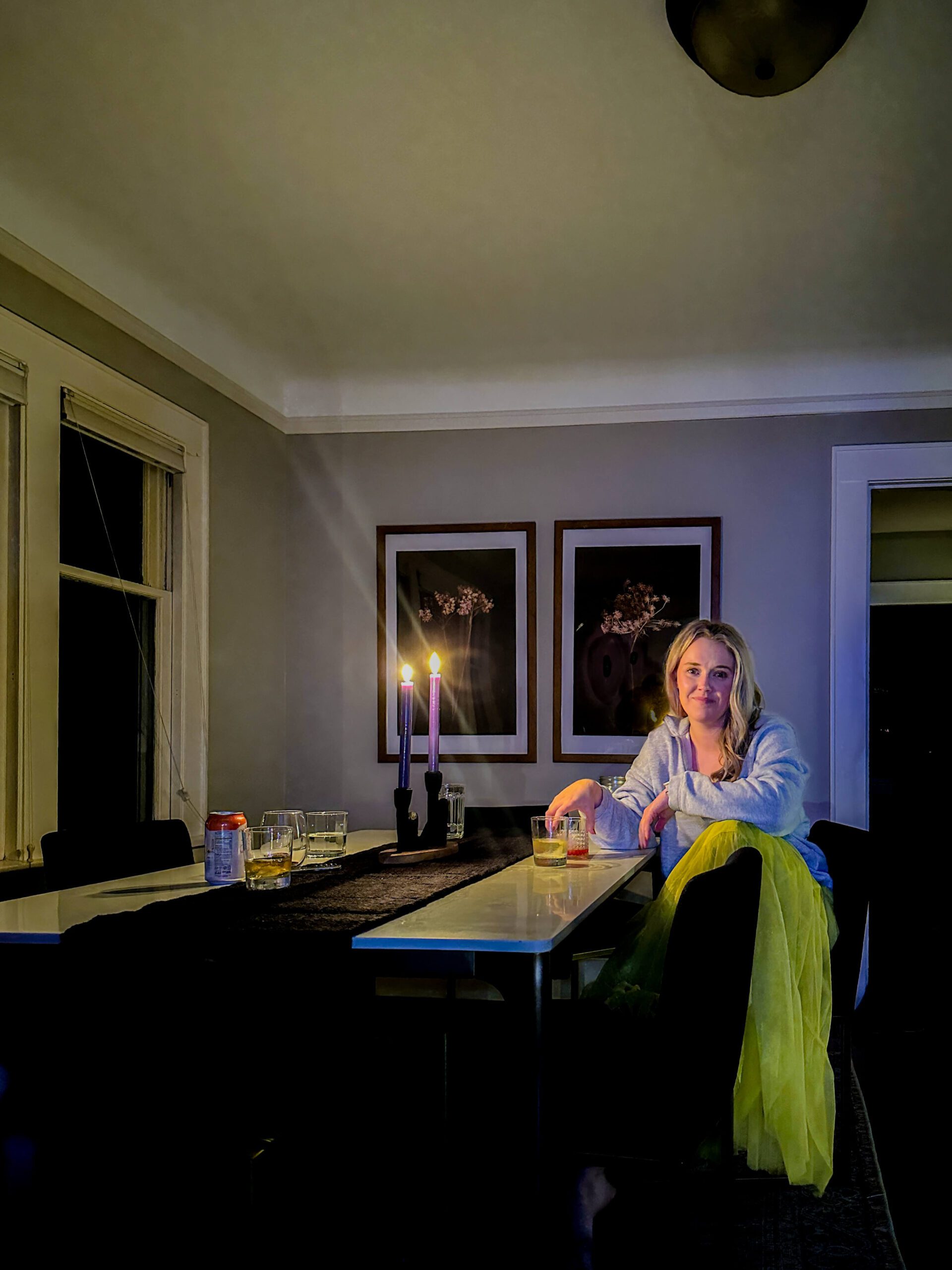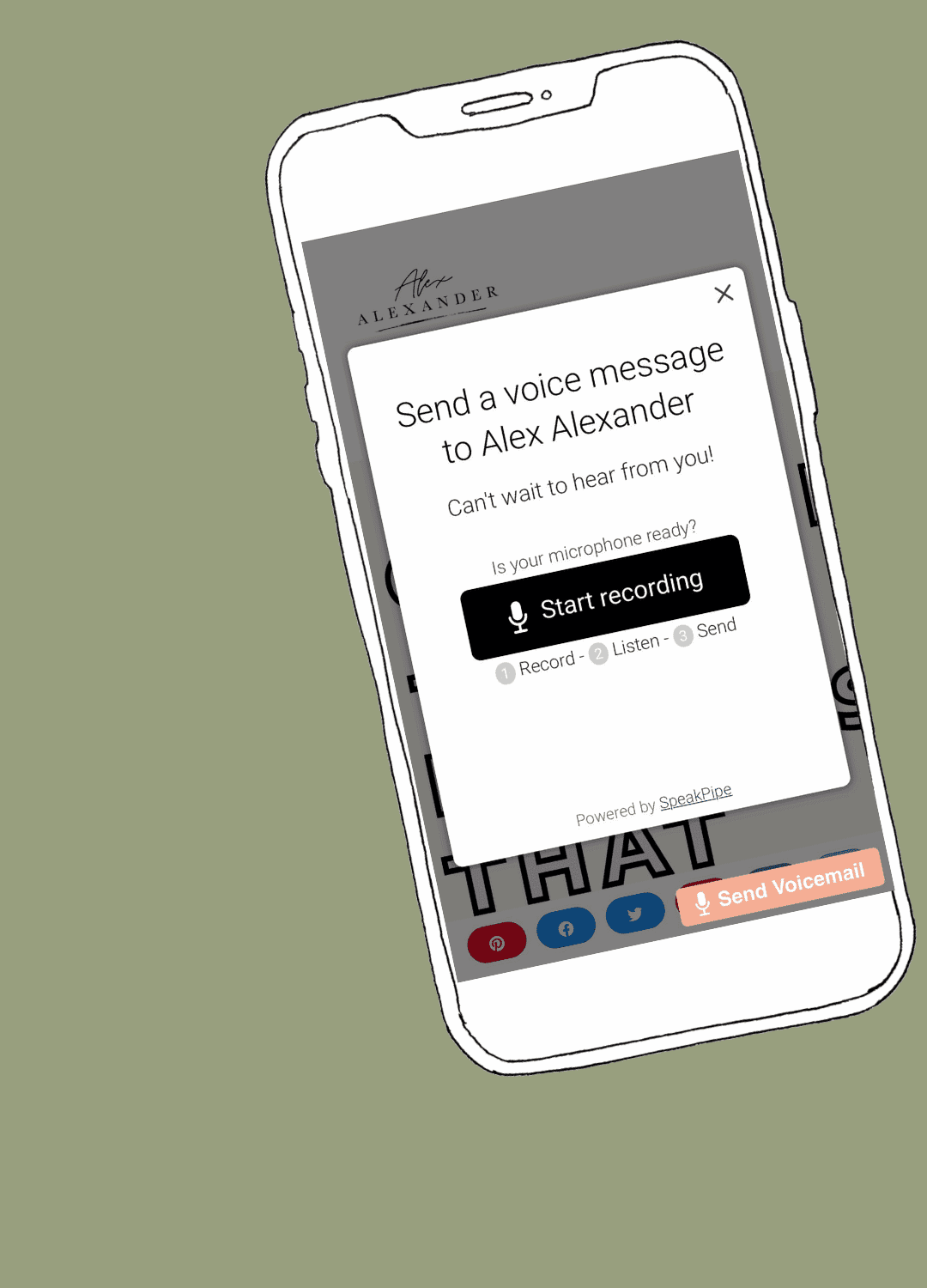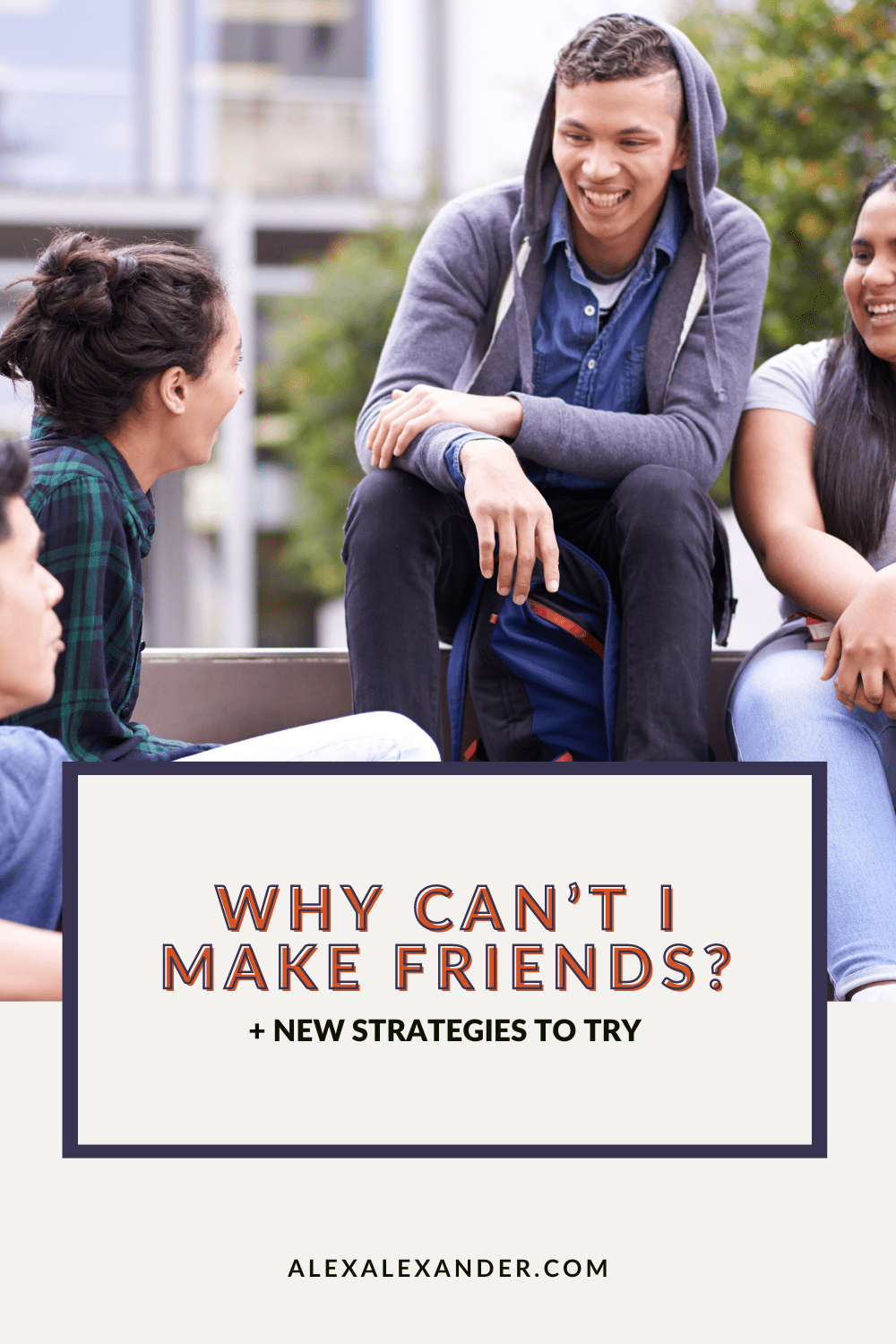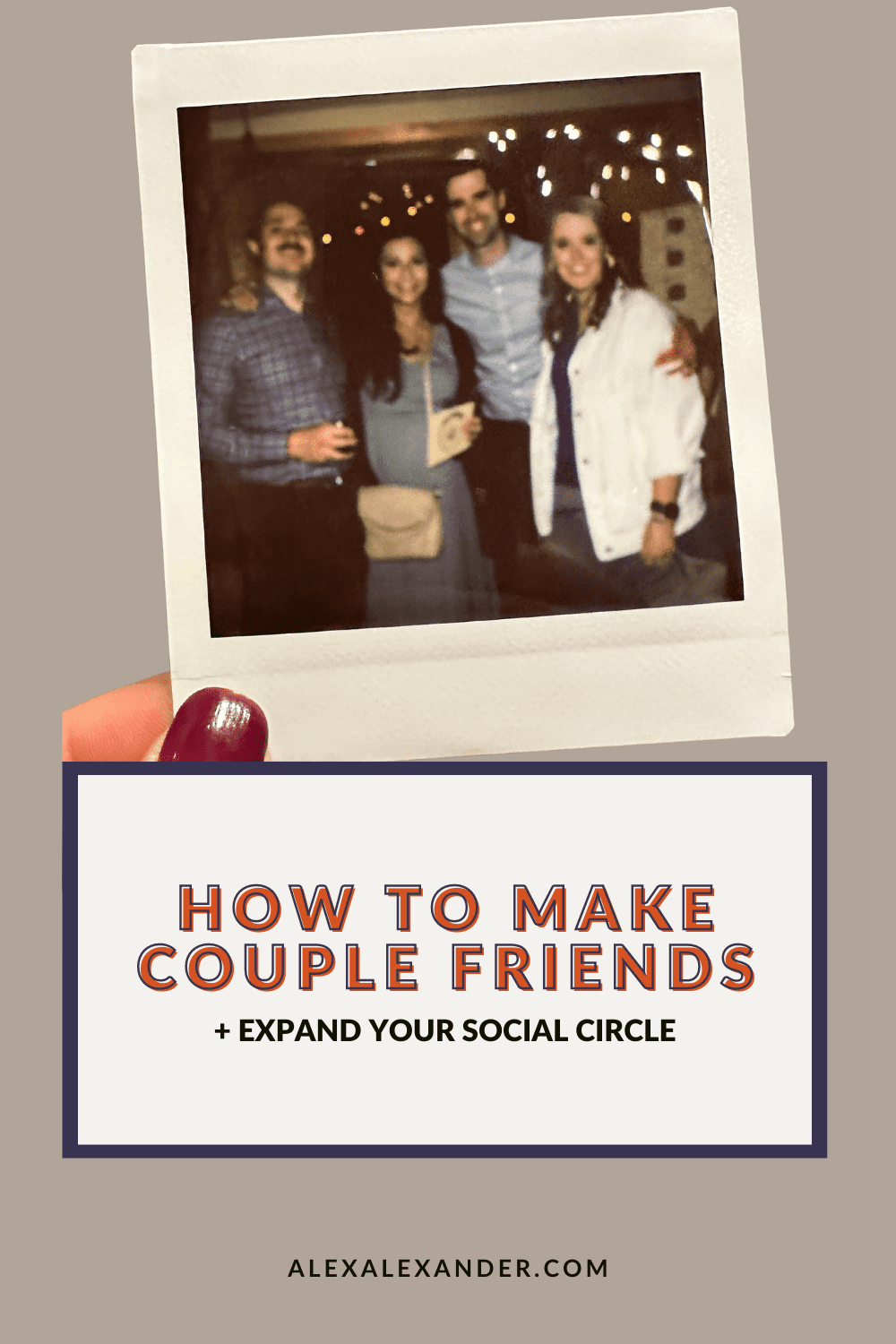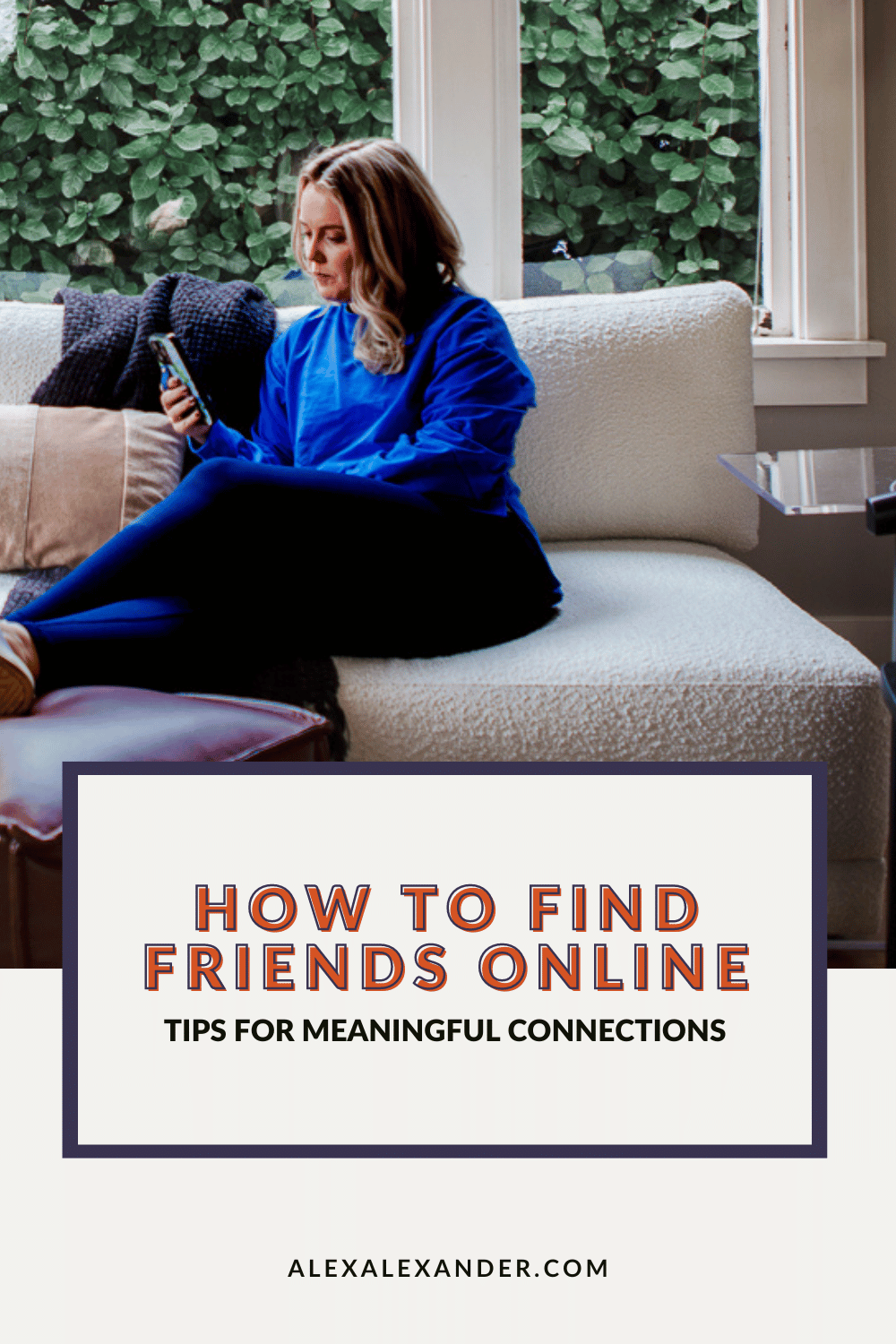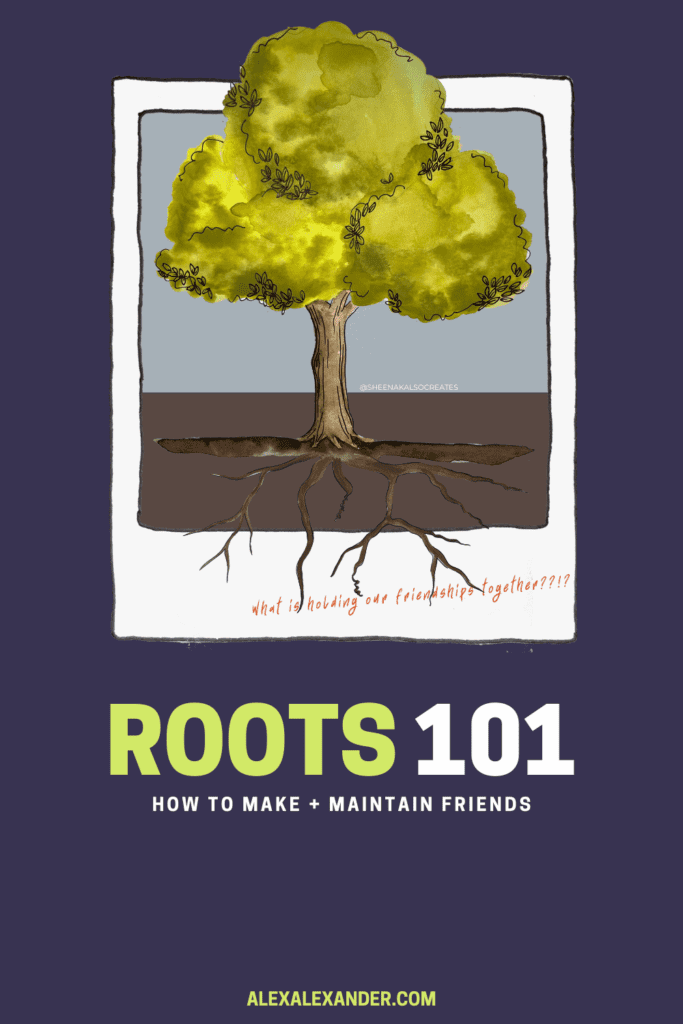
Do you remember when you met the person that is your closest friend today?
Seriously.
Do you?
The story I am about to share isn’t your exact story, or even my exact story, of meeting a close friend.
However, most friendships start in the same way – you just met a person in a place. It’s that simple.
Slowly, over time, you spent time together, noticed details about each other, and started to care about each other.
It might be hard to think of your best friend as “just another person” walking down the halls, but at one point, they were.
“…but it was a whirlwind friendship.” Before your friends, at first sight, locked eyes across the room moment, you were still just two people in the cafeteria. You probably had even passed each other in the halls for most of the year before that fateful moment.
“… but our parents introduced us when we were 5.” You still had very little knowledge of this person and zero firsthand knowledge until you met them.
“… but my sister is my best friend.” When she entered the world, you didn’t know anything about her besides that you were related. When you met your favorite person, you knew nothing about them. Maybe there was a story or two, but you didn’t know who they were firsthand for the most part.
PODCAST EPISODE! I recorded an entire episode about roots. Listen here!
Let’s float back in time….
Meeting R
You are in algebra class, and let’s just say that algebra is a class you just hope you pass. You ask the person, R, sitting in front of you a question about one of the homework problems. They tell you that page 105 has the example equation. You complain about the test being so soon, and then both of you go back to working on the assignment.
Over time, you and R start chatting more and more. You say hello when you both take your seats in class. You ask each other random homework questions before submitting last night’s assignment. R asks if you are also registering for Geometry next semester and what teacher you will pick.
You realize you are both trying out for soccer a few weeks into the quarter.
Slowly your friendship develops. You continue to see each other in algebra and talk more and more. Sometimes you talk about math, other times soccer, and every once in a while, you talk about your weekend plans or the winter break road trip your parents have planned.
It sounds silly + basic, but it’s true; we met our best friend somewhere and started talking to them.
We enjoyed their company… or perhaps we didn’t.
We all have stories of a friend whose first impression didn’t win us over – a coworker, a neighbor – but we got to know them over time because we worked on the same team or chatted every time we pulled into our driveway. Eventually, we realized they were friendly people and became a close friend.
WANT DEEPER FRIENDSHIPS?
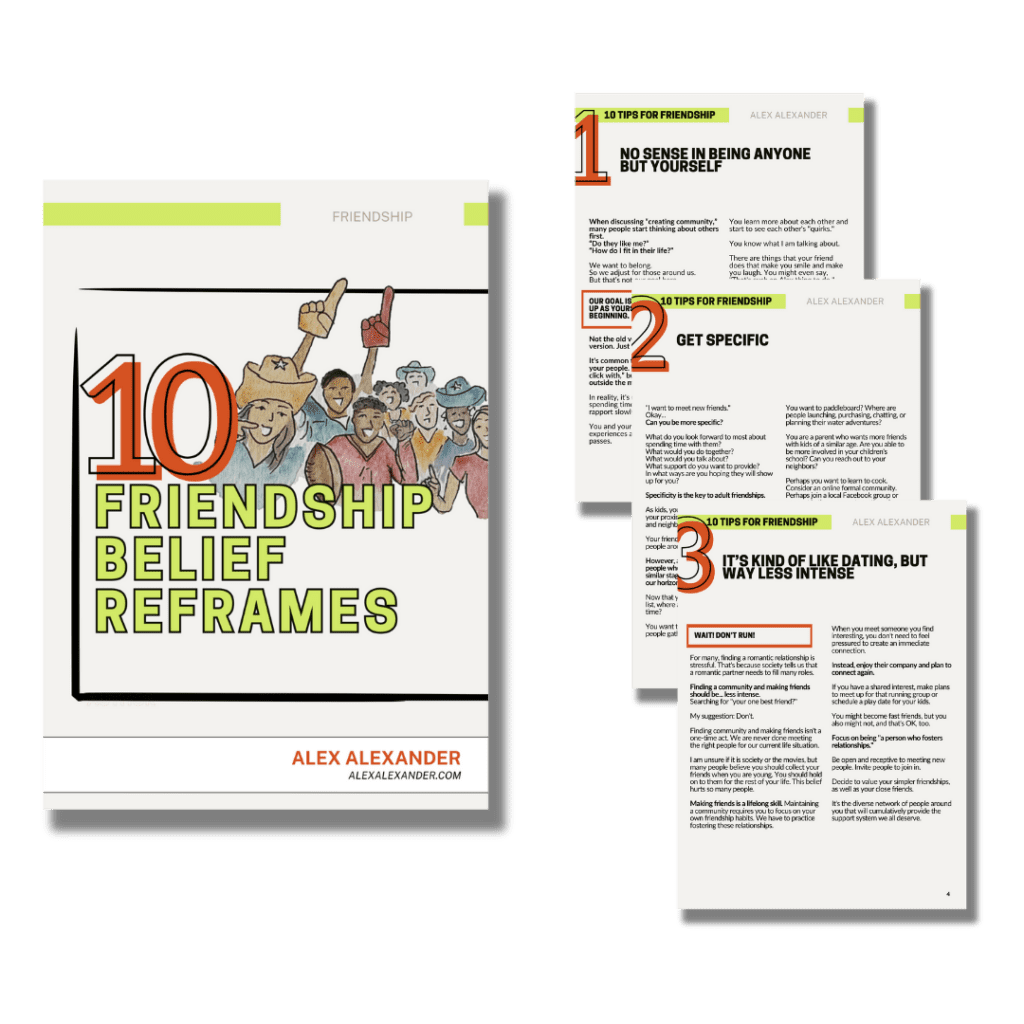
I AM GIVING AWAY MY SECRETS TO BETTER FRIENDSHIPS.
Reinvigorate your friendships and learn how to create stronger ones by incorporating my Top Friendship Reframes into your life. BONUS! An exclusive look at my upcoming book. Want to bring more purpose and value to the relationships that matter to you? Download the guide now.
Shared Experience Roots
Back to you and R – You both tried out for soccer, and as luck had it, you both made the team!
Most days, you sit outside the field waiting for your parents to pick you up, and today you asked if R wants to study together for next week’s algebra test.
R: “Let’s do it! I’ll ask my mom if I can come to your house after practice on Thursday.”
Let’s be honest; this friendship is pretty basic. You don’t have many expectations (ahem… story roots. We’re getting there) and don’t know a ton about each other, but you enjoy spending time together, so you keep finding ways to hang out.
Your shared experiences — math class, soccer practice – are holding your friendship with R together. They are the ways you spend time and the topics you reach out to talk about — the reasons you initiate (math questions) or the built-in ways you see each other (math class).
Sure, your time together in algebra and soccer practice sometimes leads you to talk about other things, but at this point, you might feel weird just texting them to say, “want to come over and watch a movie.”
SHARED EXPERIENCE ROOTS are where we collect + create EMOTIONAL INTIMACY ROOTS in our friendships.
If you and R just sat in math class for hours and hours, you’d learn lots about each other. If a friend-of-a-friend told you about R, you’d learn someone else’s perception, but actually participating in life with R creates a different kind of connection. You two are “doing” and not “telling.”
Doing allows you to collect little bits of information about each other.
- R: “I started driver’s ed last week and am terrible at parallel parking.” You remember that information, but when R and their mom give you a ride home that involves a stop at the drug store and, you guessed it… parallel parking. You notice they did fine parallel parking and wonder if they are just hard on themselves.
- You met R’s parents. R has told you quite a bit about them, but meeting them is different. Their mom is just as outspoken as R warned you but is also very kind. As you got out of the car, she asked if you needed a ride home from practice tomorrow.
- You notice R always wears a blue outfit to soccer practice—every day, without fail. When you ask R, they tell you blue is their favorite color.
- You notice R always picks chocolate chip cookies over peanut butter.
- You and R are at a soccer team dinner, and R admits that they get nervous and flustered when they order at a restaurant. “99% of the time, I regret my choice as soon as the waiter walks away,” R says, which is exactly what you witnessed.
Time together allows you both to open up and share slowly. You learn some of their simple inner thoughts and more emotional intimacy roots.
R: “I feel like a failure. I am never going to pass math class.”
You: “Oh my gosh. That is how I feel too!”
R: “My birthday is my favorite day of the year.”
You: make a mental note it’s next month.
Shared experiences and time together let you see some of the lesser-seen parts of R’s life.
- How messy their room is
- Their fears about whether they are good enough to play soccer in college
- Their mistakes, like backing into that car the first time they tried to parallel park, are why they think they won’t pass that part of their driver’s test.
Dive Deeper into Shared Experience Roots.
Listen to Alex talk more about Roots on @IGNTD.ME Podcast
• Check out the podcast to learn… ⭐️ The key to those “we can do anything together” friends intentionally building more roots. ⭐️Ways to keep friendships fresh and fun • Find the podcast on Apple Podcasts or Spotify.
Emotional Intimacy Roots
All of the information I mentioned above
- The small details
- The simple inner thoughts
- The authentic “we are both humans” moments
As well as all these shared memories you have together will turn into your history together over time.
- The inside jokes you make because only the two of you were there.
- That story you both tell about the game-winning goal. No one will remember that story quite like the two of you because no one else was there.
Deep inner thoughts are emotional intimacy roots too, but I hope you see now that they aren’t the only ones.
I’d argue that you could have a close friend and never share a deep, inner secret. I don’t know why we use the intensity of information as a marker of our friendships, but is it? Some people want some privacy, but we’ll save that for another post.
Time spent in SHARED EXPERIENCE ROOTS + acting on our EMOTIONAL INTIMACY ROOTS creates evidence in our friendships. Evidence supports our STORY ROOTS.
You’ve collected all this emotional intimacy.
You know a lot about each other, share and create shared memories.
So what do you do with all these emotional intimacy roots?
You act.
You show up and act in ways that tell your friend, “I see you, and I care about you.”
These actions can be little small actions:
Emotional Intimacy Root: R’s favorite day of the year is their birthday.
You are waiting in front of the school for a birthday treat.
You sing Happy Birthday as you walk to homeroom.
You bought them some balloons and a present.
Let’s throw a few more emotional intimacy roots in there.
You are waiting in front of the school with a birthday treat, a cookie dough ice cream cake.
You sing Happy Birthday as you walk to homeroom.
You bought them some balloons and a present, both blue, of course.
Dive Deeper into Emotional Intimacy Roots
Over time, you slowly collect these emotional intimacy roots; R does the same for you. However, it’s not enough to collect emotional intimacy. You have to act in ways that affirm the emotional intimacy roots that exist.
And you don’t have to act on every emotional intimacy root all the time, but acting creates a new piece of evidence, as long as R recognizes it and files it away as evidence (yes, that is also a key part).
The action part is crucial because it is the evidence.
Story Roots
Over time, R starts recognizing your actions and filing them away as evidence. The evidence leads them to develop story roots about your friendship.
Story roots are their beliefs about the relationship between the two of you.
Some story roots R might have::
R: “You are always willing to listen when I am sad.”
R: “You remember the things that are important to me.”
R: “You are my best friend.”
These story roots, our beliefs, lead to our expectations.
If R believes “you are my best friend,” that comes with certain expectations.
The expectations are often unspoken ones we’ve picked up from the world around us. Less often, expectations are discussed between the two friends and agreed upon.
Whether the expectations are unspoken or spoken, they exist, and how you act will either align with them or won’t.
Dive Deeper into Story Roots!
If you are thinking, “well, if they are unspoken, then how do I know what they are.” You don’t unless you ask or R mentioned an expectation in passing. And most people have never thought about their story roots, so they might not even have a clear idea of their expectations.
(SPOILER: Story roots change over time, which can also lead to frustration between friends.)
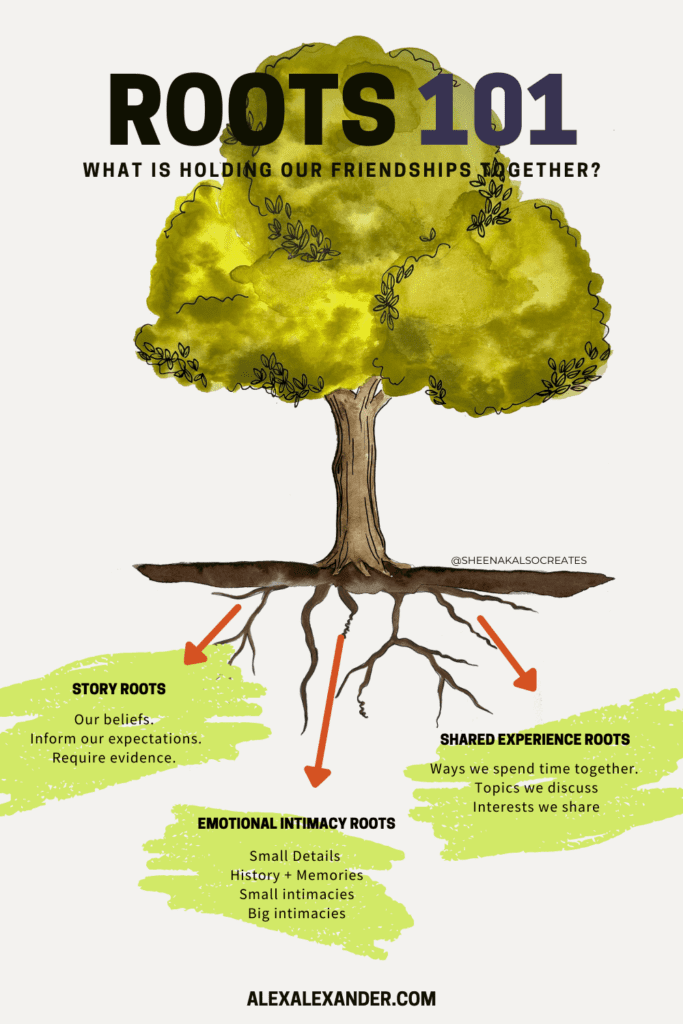
And so, the cycle repeats.
You spend time together.
You notice things about each other.
You act in ways that build evidence.
You chose to have beliefs about your friendship.
You act in ways that support those beliefs.
You enjoy each other’s friendship, so you continue to spend time together.
Back and forth and back and forth.
Now, I want to acknowledge that this story is one-sided.
The story I just told focuses on you building up R’s story roots, learning things about them, and spending time together. A friendship needs to go two ways, and R should also notice small details about you, acting in ways that give you evidence and support your story roots about this friendship.
But I wrote a book for a reason, and this blog post is already far too long, so for this blog post — IT NEEDS TO GO BOTH WAYS — I will dive more into the nuances of that in another blog post.
I’ll leave you with this:
We want friendships that make us feel something.
And do you know what makes us feel something?
When actions reinforce our beliefs.
Think about it.
We believe “they care about me.”
…but what elicits the warm and fuzzy feeling of friendship?
When a friend acts in a way that confirms our story root.
That action piece is essential.
Actions require us to connect — in person, on the phone, via text, virtually.
Connecting happens because of our shared experiences.
Curious how to keep a friendship strong? Read about the other types of roots.
